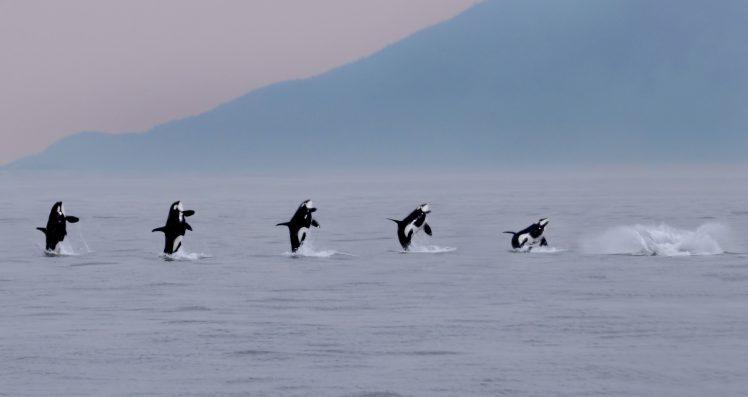An Orca Skeleton Strangely Washed Up In Florida And Is Now Being Examined At The Smithsonian, Joining The Museum’s Vast Collection Of About 18,000 Marine Mammals

The science community and marine animal lovers were paying close attention to a particular road trip that happened at the end of this summer.
In late August, the remains of a female orca, otherwise known as a killer whale, were transported by a pickup truck from Florida to the Osteo Prep Lab in Maryland for the Smithsonian’s National Museum of Natural History.
The body of the massive 21-foot-long orca was discovered back in January under rare circumstances, washed up and stranded on a beach near Palm Coast, Florida.
Members of the NOAA (National Oceanic and Atmospheric Administration) and the Florida Fish and Wildlife Conservation Commission were called in to examine the orca and conduct a post-death study.
The studies revealed that the female orca showed signs of chronic illness and a benign fibrous tumor in her reproductive tract.
She also had some bleeding in her lungs and muscles, but that could have occurred after she had become stranded on the beach.
The discovery of this orca is quite fascinating, as they typically aren’t found stranded in Florida. Only two other orcas have been stranded in Florida, and the last one was recorded all the way back in 1956.
The orca naturally decomposed to the bone after being taken to the University of Florida in Gainesville. The skeleton was then studied and carefully collected to transport it to the Smithsonian’s Osteo Prep Lab at the Museum Support Center in Suitland, Maryland.
The bones were carefully driven to Maryland in a truck in black contractors’ bags and have been getting thoroughly examined by experts.

Aaron Whitney – stock.adobe.com- illustrative purposes only
The professional staff at the Smithsonian will conduct further research on the bones, revealing much more about the orca’s life and hopefully explaining how it ended up stranded on a beach in Florida.
As of right now, there are no plans for the orca to go on public display at the Smithsonian, but researchers will be adding its bones and genetic material to their valuable collection of 18,000 marine animals to be available for future scientific research.
Can you imagine how wild it must’ve been to discover that rare orca?
If true crime defines your free time, this is for you: join Chip Chick’s True Crime Tribe
In 1972, She Went Out On A Date With A Man And Was Tragically Never Seen Again
She’s Showing You How She Gave Her 1950s Pink Bathroom A Modern Makeover
She Was The First African American Woman To Open Up A Bank In The United States
Sign up for Chip Chick’s newsletter and get stories like this delivered to your inbox.
More About:News